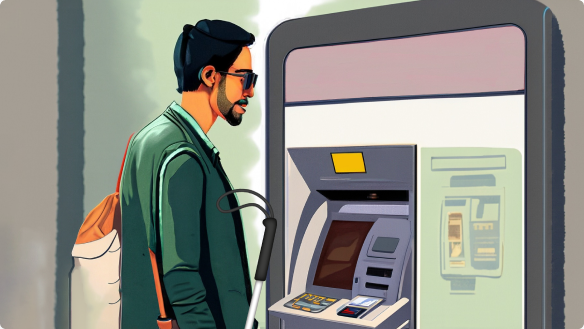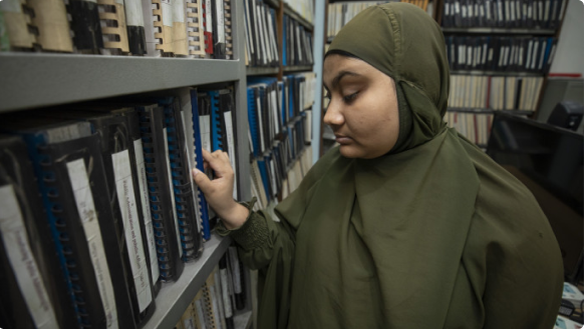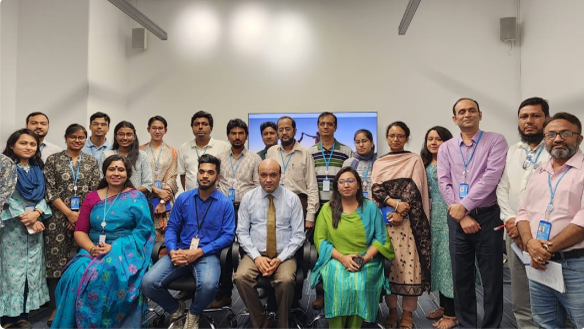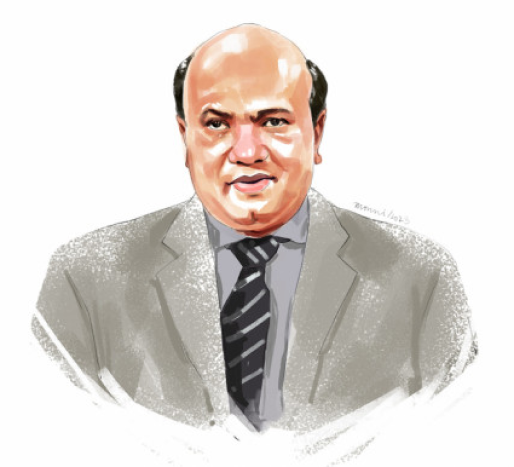Disability Innovation Lab
By harnessing the power of technology and innovation, the Disability Innovation Lab (DIL) aims to empower individuals with disabilities, fostering an inclusive global society. Working closely with people with disabilities, disability rights organizations, and various stakeholders, the lab diligently identifies their unique needs and develops sustainable solutions in key areas such as assistive technology, accessible information, inclusive financial systems, disability and digital inclusion training, inclusive institutions, and research. The lab's unwavering dedication is evident through the creation and distribution of affordable, high-quality devices and tools, facilitating improved communication, mobility, and engagement for individuals with disabilities. Notable achievements facilitated by a2i include the development of multimedia resources, accessible dictionaries, screen reading software, and web accessibility plug-ins. Through the commitment of leveraging technology and innovation, the e-Quality Center Disability Innovation Lab intends to make significant strides towards establishing a global society that is truly inclusive and accessible for all.
a2i’s Disability Innovation Lab (DIL) focuses on 5 key areas:
Building digital innovations with persons with disabilities
Conducting audits on national digital platforms
Developing capacity amongst service providers to make their digital platforms accessible
Supporting formulation of appropriate policies, laws and standards
Continuously working on policy advocacy with policymakers and government officials at all levels from the ministries to field level officials
Major Projects and Initiatives
a2i’s Disability Innovation Lab (DIL) has undertaken several significant projects.
Multimedia Talking Books
The lab, in collaboration with Young Power for Social Action (YPSA), has introduced the Multimedia Talking Books project, which utilizes modern technology to provide education to visually impaired students and children with disabilities. These audio-visual books cover various subjects and educational levels, enabling thousands of children across the country to access education and improve their overall quality of life. This initiative aligns with the vision of an educated and technologically empowered society by 2041.
Accessible Dictionary
The Accessible Dictionary initiative ensures that knowledge and information are accessible to all, including people with disabilities. Through an online dictionary with interactive features, such as audio recordings, high-contrast text, and large fonts, individuals with visual impairments, dyslexia, and language barriers can easily access information. By promoting inclusive learning and reducing barriers to knowledge, this initiative contributes to the educational transformation envisioned for Smart Bangladesh 2041.
Inclusive Banking System
The Disability Innovation Lab has implemented an inclusive banking system to ensure that financial services are accessible to all citizens, including persons with disabilities residing in rural and remote areas. By conducting accessibility audits and assessments, and developing accessibility widgets, the lab aims to make banking and financial services more inclusive and enable greater access to finance for people with disabilities. This initiative aligns with the goals of poverty reduction, economic development, and financial inclusion set forth in Smart Bangladesh 2041.
Web Accessibility Widget:

The lab has developed a web accessibility widget designed to make websites more accessible to people with disabilities. This widget incorporates features such as text-to-speech, magnification, and color contrast adjustment, enhancing the online experience for individuals with disabilities. By fostering an inclusive and accessible internet environment, this initiative supports the digital empowerment objectives of Smart Bangladesh 2041.
Buet's Institute of Information and Communication Technology (IICT) and the Aspire to Innovate (a2i) program of the ICT Division joined forces to organise a comprehensive capacity development workshop centred on the importance of web accessibility.
Inclusive Education:

Recognizing the importance of providing quality education to all individuals, a2i executed the establishment of an inclusive university at Chittagong University. This project ensures equal access to higher education for students with visual disabilities through the development of accessible resources, user-friendly study materials, and digital technology training. By promoting inclusive education and ensuring that no student is left behind, this initiative aligns with the education-focused goals of Smart Bangladesh 2041.
Nahian Bushra is a visually impaired student who recently graduated from the department of International Relations, University of Dhaka. While her education prior to university was relatively smooth sailing, her years at DU were a struggle.
Disability and Digital Inclusion Training:

DDT training, as a unique approach to achieving digital inclusion, innovation, and accessibility, plays a vital role in realizing the vision of Smart Bangladesh 2041. By providing in-depth knowledge of disability rights and promoting the active participation of people with disabilities, DDT empowers individuals to become active contributors in building an inclusive society. Guided by the principle of ‘nothing about us without us,’ this training module is a stepping stone toward ensuring equal rights and opportunities for all citizens, aligning with the goals of Smart Bangladesh 2041.
Aspire to Innovate (a2i) and Friendship Inclusive Citizenship has organized a daylong training program on “Disability and Digital Inclusion” for 25 prominent journalists of national popular media held at Dhaka Reporters Unity (DRU) on Monday.
Case Study:
Accessible Digital
Financial Services
Vashkar Bhattacharjee, a visually impaired person faced discrimination when a private bank refused him a credit card Seeking help from the NHRC, the bank was directed to issue a credit card, initiating the journey toward accessible digital financial services. 4 banks are currently working to make their digital services accessible.


